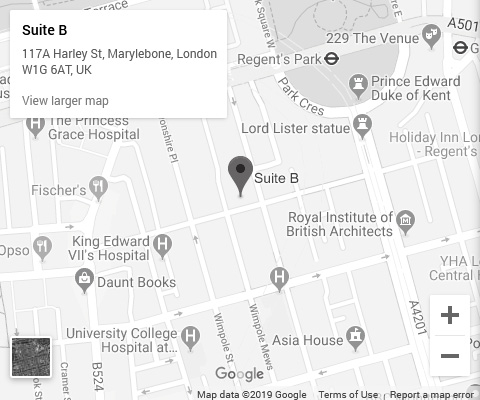
Let’s talk about something most women experience but rarely discuss openly: irregular periods. A “normal” menstrual cycle typically lasts between 21 and 35 days, with bleeding occurring for around 3–7 days. However, life isn’t always so predictable—sometimes your period shows up late, early, or skips town altogether. This is what we call an irregular period, and it’s more common than you might think. According to guidelines, while irregular periods often aren’t serious, they can sometimes signal underlying health issues. So, if you’ve been wondering what causes irregular periods in the UK, this blog is here to help. We’ll explore the reasons behind them, when to see a doctor, and how to manage them naturally or medically.
What Is an Irregular Period?
An irregular period refers to any deviation from your usual menstrual cycle. It could mean missing a period, having two in one month, or experiencing unpredictable timing that leaves you feeling like you’re playing menstrual roulette. The defines an irregular menstrual cycle as one where the length of time between periods varies significantly. For instance, if you usually have a 28-day cycle but suddenly find yourself waiting 40 days or only 20, that’s considered irregular.
How long should you wait before seeking medical advice? If your cycles remain inconsistent for three months or longer, it’s wise to consult a GP. Other red flags include very heavy bleeding, severe pain, or unexpected spotting. Remember, knowing when irregular periods need a GP appointment in the UK can save you unnecessary stress later on.
Common Causes of Irregular Periods
Hormonal Imbalance
Hormones are the unsung conductors of your body’s orchestra, and when they go out of tune, things get messy. Oestrogen and progesterone play starring roles in regulating your menstrual cycle. Too much or too little of either hormone can throw your cycle off balance. For instance, hormonal contraceptives like the pill can alter your natural rhythm, and stopping them abruptly may cause temporary chaos.
If you’re searching for treatment options for irregular periods on the , your GP might suggest hormonal therapies to restore equilibrium. These treatments aim to mimic your body’s natural processes and bring order back to your cycle.
Health and Lifestyle Factors
Life happens, and sometimes it disrupts your period. Stress, sudden weight changes, poor diet, and excessive exercise can all wreak havoc on your hormones. Ever noticed how exam season or a big work deadline coincides with a missed period? That’s no coincidence—stress triggers cortisol production, which can interfere with ovulation.
In fact, stress causing missed periods in the UK has become a growing concern among busy professionals and students. Similarly, over-exercising without proper nutrition can lead to irregularities, as highlighted by research linking excessive exercise to irregular periods in the UK. Finding a healthy balance is key.
Medical Conditions
Certain conditions are notorious for messing with your cycle. Polycystic Ovary Syndrome (PCOS), for example, affects up to 10% of women worldwide. Characterised by hormonal imbalances and small cysts on the ovaries, PCOS symptoms include irregular periods, acne, and unwanted hair growth. In the UK, many women seek answers about PCOS symptoms and irregular periods in the UK after noticing these patterns.
Thyroid disorders are another culprit. An underactive or overactive thyroid can disrupt your menstrual cycle, leading to questions like thyroid and menstrual cycle irregularities UK. Finally, perimenopause—the transition phase before menopause—often brings erratic periods as hormone levels fluctuate.
When to Seek Medical Advice in the UK
While occasional irregularity is normal, persistent issues warrant attention. If your periods stay irregular for more than three months, it’s time to book a GP appointment. Additionally, watch out for warning signs such as extremely heavy bleeding, unbearable cramps, or unexplained spotting between periods. Knowing when irregular periods need a GP appointment in the UK ensures you address potential problems early.
Booking an appointment is straightforward through the or private clinics. Your GP will guide you through the next steps, including referrals to specialists if needed. Don’t hesitate to advocate for yourself; your reproductive health matters.
Get Expert Help for Irregular Periods
Don’t let menstrual irregularities disrupt your life. Book an appointment now and start your journey to better hormonal health.
Diagnosis and Tests
During your visit, your GP will likely ask about your symptoms, lifestyle, and family history. They may recommend blood tests to check hormone levels, thyroid function, or iron deficiency—anaemia is a sneaky contributor to heavy or irregular periods. Ultrasound scans are also common, especially if PCOS or fibroids are suspected.
The provides comprehensive care, ensuring timely referrals to gynaecologists when necessary. Understanding this process helps ease anxiety, as many women fear being dismissed or misunderstood.
Managing Irregular Periods
Natural and Lifestyle Management
Sometimes, simple tweaks can make a world of difference. Eating a balanced diet rich in fruits, vegetables, whole grains, and lean proteins supports hormonal stability. Prioritising sleep and managing stress through yoga, meditation, or hobbies can also help. Many women swear by tracking their cycles using apps, which provide insights into patterns and triggers.
For those asking how to make periods regular naturally in the UK, maintaining a healthy body weight is crucial. Both obesity and extreme thinness can disrupt ovulation. Regular, moderate exercise boosts circulation and reduces stress, further promoting menstrual health.
Medical Treatment Options
If lifestyle changes aren’t enough, medical intervention may be required. Hormonal therapies, such as contraceptive pills, regulate cycles by stabilising hormone levels. Women with PCOS or thyroid disorders often benefit from tailored treatments prescribed by their GP. Exploring treatment options for irregular periods, the empowers you to take control of your health.
Diet and Hormone Balance Tips
Food plays a vital role in hormonal harmony. Focus on nutrient-dense foods like leafy greens, nuts, seeds, and fatty fish rich in omega-3s. Iron-rich foods like spinach and red meat combat fatigue caused by heavy periods, while B vitamins support energy metabolism. For inspiration, search for the best diet to balance hormones and irregular periods online.
Tracking your cycle doesn’t just help identify irregularities—it fosters a deeper connection with your body. Apps like Clue or Flo allow you to log symptoms, mood swings, and flow intensity, providing valuable data for discussions with your GP.
FAQs
Can stress really cause irregular periods?
Yes, chronic stress elevates cortisol levels, disrupting ovulation and delaying periods.
How long is too long for a missed period?
If your period is absent for over 90 days and pregnancy isn’t a factor, consult your GP.
Can PCOS cause irregular or missed periods?
Absolutely. PCOS interferes with ovulation, leading to infrequent or absent periods.
What blood tests check for hormonal imbalance in the UK?
Common tests measure oestrogen, progesterone, testosterone, thyroid hormones, and prolactin.
How can I make my period regular naturally?
Adopt a balanced diet, exercise moderately, manage stress, and maintain a healthy weight.
Conclusion
Irregular periods are frustrating, but understanding their causes and management strategies makes them less daunting. Whether it’s hormonal imbalances, lifestyle factors, or underlying conditions like PCOS or thyroid issues, there’s always a path forward. By tracking your cycles, making mindful lifestyle choices, and seeking timely medical advice, you can regain control.
Remember, resources and private clinics offer excellent support. If you’re struggling with persistent irregularities, don’t hesitate—book that appointment. After all, knowledge is power, and your menstrual health deserves priority.






-in-the-UK.jpg)

